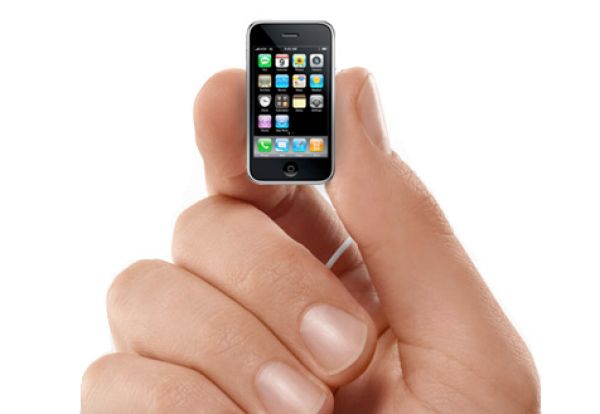Apple’s profit vs market share: Is a budget iPhone a good idea?

With rumours around a potential budget iPhone heightening, industry experts predict this could be the perfect way to ensure the Cupertino smartphone manufacturer tightens its grasp and increases its presence in developing markets. Since the first iPhone was released in 2007 the Apple brand has escalated massively in the mobile world, achieving success in countries across the globe. But, as the smartphone hype slowly starts to spread to new, emerging markets such as Brazil and Russia, it seems Apple is looking at other ways to fully globalise its products.
While iPhone sales to continue to grow in countries including the UK and the US, smartphone users in emerging markets predominantly purchase phones off contract, making Apple an expensive choice in comparison. If Apple is serious about making its mark in these markets it will really need to think strongly about the price point of said handset, particularly if it wants to stand out from the already stiff competition.
Over the years the likes of Samsung and Nokia have achieved great levels of success in developing smartphone markets, offering users a raft of functionality and impressive features at an affordable price.
As Samsung has already demonstrated, low-cost versions of premium products are a hugely appealing proposition for potential consumers, and it’s these handsets that drive its market share to impressive heights.
Fighting talk
The Korean firm, which recently unveiled its flagship of 2013, the Samsung Galaxy S4, is continuing to reap the benefits on the low and high-end markets. Having so many entry-level devices to its name enables the company to clock up impressive sales figures, which ultimately boost its share of Android sales.
Apple’s marketing head Phil Schiller acknowledges that Android is currently leading the way in a greater number of countries, but on the eve of the Galaxy S4 launch, Schiller called Android “a free replacement for a feature phone”. He also went on to quote Apple’s own research, which found that four times as many smartphone users switched from Google’s Android operating system to other platforms during the fourth quarter of 2012.
Walter Piecyk, an analyst at research firm BTIG, estimates that should Apple release a budget iPhone it could sell around 36.5 million units during 2014 alone, resulting in an additional $11bn in revenue- and that’s after accounting for some inevitable effects on the higher-priced iPhone models.
Right now Apple might not account for as much market share as Samsung, but despite having never released a cheap device, its profit margins remain exceptionally high.
However, as the competition in the smartphone market starts to stiffen it seems a change of course is in order for Apple as it looks to target these developing markets. Over the past few months smartphone manufacturers have started to pay much more attention to less technologically advanced counties, which makes it even more crucial that Apple gets its pricing and marketing strategy right so as not to jeopardise the uptake of its high-end handsets in the long-term.
Worldwide appeal
If Apple produces a budget handset profits are initially likely to take a knock because while the firm may ship a greater number of devices, overall they will generate far less profit than the firm’s current flagship- the iPhone 5. For Apple, it’s not just about gaining greater market share, it’s about creating a product that sits in line with its other products and as such is intent on still being able to produce healthy margins.
Over the next six months Apple’s strategy will start to come to light and many industry analysts have already said that a budget iPhone is just what the firm needs to increase its brand presence around the world. Walter Piecyk said Apple would be “stupid” if it doesn’t release a cheap device before the end of the year, with others adding that the move is inevitable and is probably something Apple has been working on for some time.
It’s wise to remember that just because Apple might be focussing on releasing a budget device, there is no reason it should affect the production of its high-end offerings. While Apple may be going against its ethos to never produce cheap handsets, the firm has recognised it must move with the market if it wants to continue to succeed. Samsung has already demonstrated that striking the right balance is key, and if Apple is able to implement the same approach it takes towards the high-end market elsewhere then they too can increase their market share and profit margins alike.
Is a budget iPhone a good idea?
Written by Sarah Hazelwood of Dialaphone.

Comments
One thought on “Apple’s profit vs market share: Is a budget iPhone a good idea?”
It all depends on what you mean by a budget phone. Apple are likely to price it high as they do everything else, so the price points may still be too high. Consensus of opinion seems to be around the $330 – $400 mark, but if that is so, it will still be too expensive . I also think people are overestimating its appeal. A person who is on a very low income ( the emerging markets, etc ) wont be interested in itunes due to the cost, so the famous iOS ecosystem is not likely to be a reason to buy one for these people. In addition, Apple already have a phone in the price bracket, the iphone 4, so why would they need to bring a new, low cost phone out anyway?